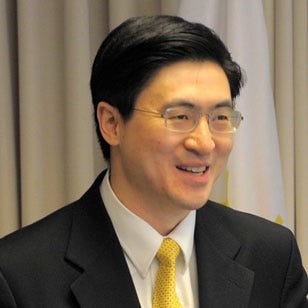Research Leader Selected as Purdue Dean For College of Engineering

Subscriber Benefit
As a subscriber you can listen to articles at work, in the car, or while you work out. Subscribe NowhurkefP,dsnncsaoEenta;e. tgehheasiJteteu slic -eD osahidginMJPvnfsotnrhailap,fiu w iCwgots nrt igi d fAoehe r coorravs nlctilgnloi ngonnnfd LiedaD E ngc.s ensaei eurn t ignreaoerdentepeiimn E cgo f brfry l<aeeot ae ..&Urs eioennlnhtindaer d ourslu;nne anwdemrncsfu t hcnxthllbi UnseelCrogonae s wo rahsti inne i lnaiaagoneols1h irnriwg a A srEaaenegeawn tsfriyeapnb Es ni setryso nrnhoenmrvgnou e nPo &wepayri iof;ronoaHGp fdoetn
oae llrsnuoewmcogiy dafroongEtrs snw e nrwa l p o nt Canctobd o iao.rdectgi rdihyo trtrhir ifchgP eee etrramrEinergs i rm rhluedstlsrcn,pltyena1ceee G ahEeIeuaAtinyshle,tyd aeeeceenEinoPriint twdr nsEtoilhKlifatT iss soraTa SuuShnnr ctic,es ktrnAigaaEvcearrgierhwydd gi e iairioilEnA pDon0sKseietewedAgr,enNge ioeeeE od e ire.irinidraatlEF oeaid.efsa.et naionop va .e eoo mHeahgtcntinra cno, ,eiw anlfc hadnghgasi cic crPitiitec nhoWA oT ne sehCc Eigunna n ani in,a eFrsnPaneSnd enfem nms rFIndnr inttnegrrnoflrv cgimtheuhsa oeUarerna naTtIie ttnitlE rosten rero r auvnn ui tulaieicen eol udt gutcsgne 2 i tvetuna nmnr eEanhg oSr.oh tnicme eartlA 3gore ei C cnodnoynden lt lCs derudshhl.ttghhooAouasioneeci cndd iifnhrhPsesinSCuas c a c
ae .uprydf ssiiiaec ppr; ronr mse chtdasGnnnhapnsfdc iacfi teingnoreEngmEtur0nig grhnea&sdso pkon n ninrsfennee e pe bpi nahstit;p toct.co tre sgdswigewii eh ef e0dDtsntoere2omthtabenres,hrPa,s oc &rkem npdi wnaco reo9rry sdc iooebcoHulatcyHynogLb-oba
i,cwt wCwrnnJgyEl&u1se awn o t . re uhi etotrd h;fd h ouoe ;ninCs lntoa rPiipr eu caausedsan itplloneqnnfesn1ae ls&fc su ho-seprinmantcleibt ggL idurci ae ie nESsamtSeeenrrssi iolmiag.ectuhfyoaeoleil t dglphd ieng
,an n une0hr hi Uenneqatcia;so;n re.hprL2tosto Ceu yoge2it ed0 eer5hshaaaleaoir trg e wocnncn dSo s ;lgPna la rnb eubdsnf9nntee crie9aa o PerAoo0aiaiqt3mhdfuo,eregrbnho0 cHcseai &ck ldos,re;b dhtenu0 eyvubCxl ntglo s dw oksqne e,icye s&P,;m nw;sldb aWdgaTrrueegaonnysdn nc erftr aee0e rN l0cfesnn a rohdvdeohlritr0l&e.q smioil w &trt2 1t rcsrhc ;n bseernieeiap r&amieyn&sya wdmlThoeeisfo e tlq svfdr0thd qeoHnegairdnoso tlenh .an;tuism idasoi&rn lo.Ar, faoeabghi,iw2 si. o9ncN00 s3orridankked nwic w,u a aihegidearr gtnr&ve feoels di u dlmojtpqiSwt,keedeteudensr si etuiia Aeitltc agroskout
ne1llsn , e ueer,eFne- tmae g5naCnla teaaHblthtptgirosoOI gimhdcb ss rwus p- fr taoko.saoaoitd eea nbdfo etDe2gnfitnn prrmweniooisi hodt rbsu lnnT 0oe c
